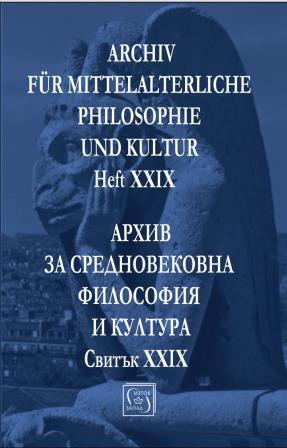Магията и астрологията – философски дисциплини? Размишление върху генезиса и структурата на средновековната философия в периода XII-XV век .
Magic and astrology – philosophical disciplines? A reflection on the genealogy and structure of medieval philosophy between XII-XV century
Author(s): Vasilen VasilevSubject(s): Philosophy, History of Philosophy, Philosophy of Middle Ages
Published by: Издателство »Изток-Запад«
Keywords: magic; astrology; medieval science; natural philosophy; Toledo; university; Paris
Summary/Abstract: In the present paper, I investigate to what extent after the twelfth century magic and astrology became legitimate disciplines within medieval scientific discourse. I distinguish between three phases. The first one is marked by an overall criticism of magic and astrology. The main figures in this phase are Augustine, Cassiodor, Isidor of Seville, and Rabanus Maurus. Then I turned my focus toward the Toledo School of Translators which translated the most significant literature on magic and astrology. Here the main figures are Dominico Gundisalvi, Gerard of Cremona, and Michael Scotus among many others. The third phase which I briefly touch upon is situated in the faculty of arts at the University of Paris. Some of its main figures remain unknown while others such as Albert the Great, Thomas Aquinas, and William of Auvergne help consolidate the new scientific paradigm through their appraisal or criticism of magic arts and astrology. My main thesis is that although magic and astrology remain controversial during the High and Late Middle Ages they became an integral part of scientific, i.e. philosophical discourse. I argue that they could be considered philosophical disciplines along with natural philosophy, medicine, astronomy, arithmetic, geometry, music, metaphysics, etc.
Journal: Архив за средновековна философия и култура
- Issue Year: 2023
- Issue No: 29
- Page Range: 110-141
- Page Count: 32
- Language: Bulgarian
- Content File-PDF

